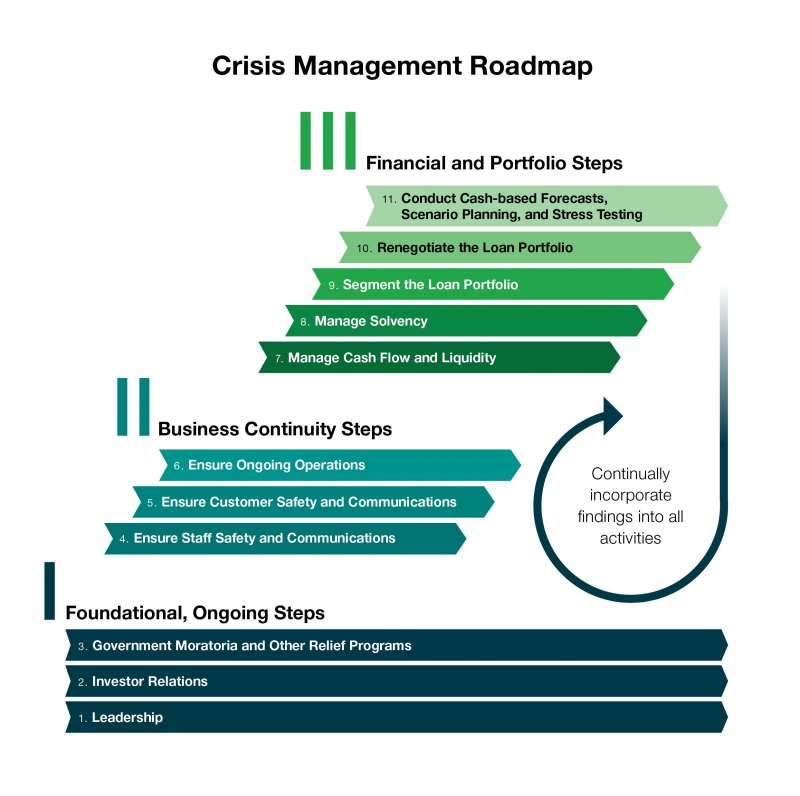
- Details
"This crisis response roadmap is designed to help MFIs navigate the immediate health pandemic and its economic impact, and to provide guidance on recommended practices that are both relevant today and for future crises. It lays out a sequence of steps for MFIs to follow, some of which are informed by earlier crises. The first series of steps are ongoing ones that are fundamental to good crisis management and cut across all others.
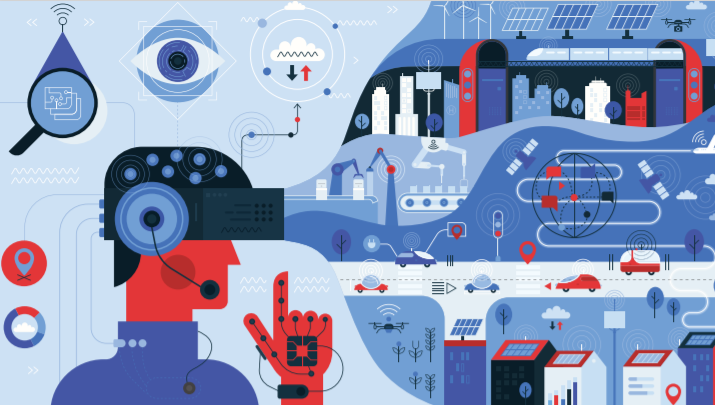
- Details
"The shift to a hyperconnected world presents a formidable opportunity—but also risks and challenges". This article discusses three important areas: sattelites for internet, digital IDs, and management of digital risks.
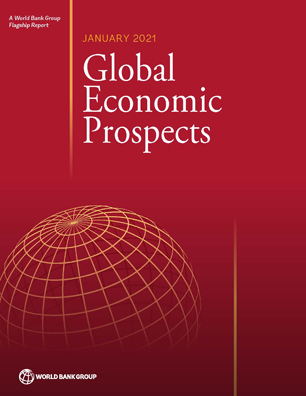
- Details
"Although the global economy is emerging from the collapse triggered by COVID-19, the recovery is likely to be subdued, and global GDP is projected to remain well below its pre-pandemic trend for a prolonged period. Several risks cloud the outlook, including those related to the pandemic and to rapidly rising debt. The pandemic has further diminished already-weak growth prospects for the next decade. Decisive policy actions will be critical in raising the likelihood of better growth outcomes while warding off worse ones. Immediate priorities include supporting vulnerable groups and ensuring a prompt and widespread vaccination process to bring the pandemic under control."
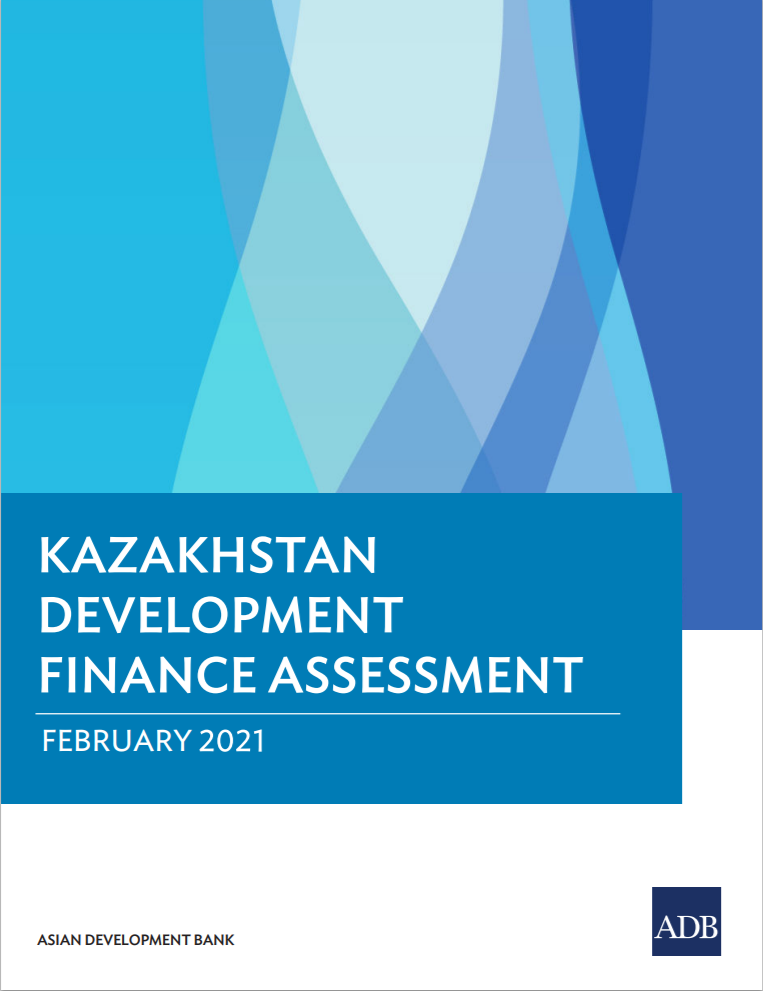
- Details
"Meeting the 2030 Agenda for Sustainable Development requires unprecedented investment from different sources. In recent years, total available development finance in Kazakhstan stagnated and decreased significantly as a share of gross domestic product. The publication also includes a review of existing policies and partnerships along with recommendations that are aligned with achieving the Sustainable Development Goals."
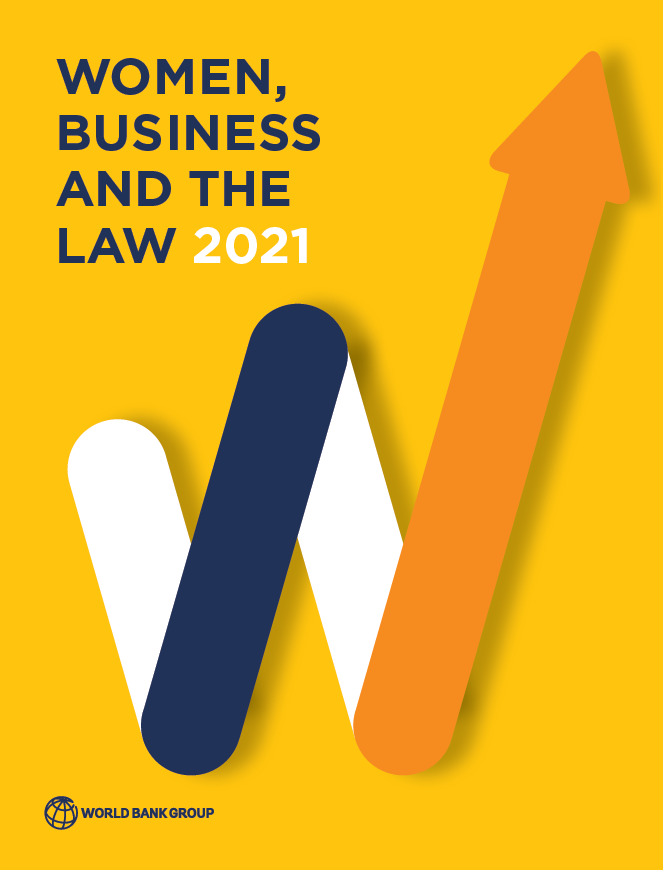
- Details
"Women, Business and the Law 2021 is the seventh in a series of annual studies measuring the laws and regulations that affect women’s economic opportunity in 190 economies. The project presents eight indicators structured around women’s interactions with the law as they move through their lives and careers: Mobility, Workplace, Pay, Marriage, Parenthood, Entrepreneurship, Assets, and Pension. This year’s report updates all indicators as of October 1, 2020 and builds evidence of the links between legal gender equality and women’s economic inclusion. By examining the economic decisions women make throughout their working lives, as well as the pace of reform over the past 50 years, Women, Business and the Law 2021 makes an important contribution to research and policy discussions about the state of women’s economic empowerment.

- Details
"With the great strides in financial technology in recent years, the lower data processing costs and fees associated with investing in the stock market should have led to broader increases of household wealth. But in this podcast, economist Roxana Mihet says while fintech has reduced barriers to access and held out the promise of gains for all, it may have worsened capital income inequality. Mihet is Assistant Professor of Finance at HEC Lausanne, and her recent study suggests the most likely beneficiaries of financial innovation are those who have access to the valuable data that inform good investments."
Read more … IMF Podcast on Financial Innovation and Rising Inequality
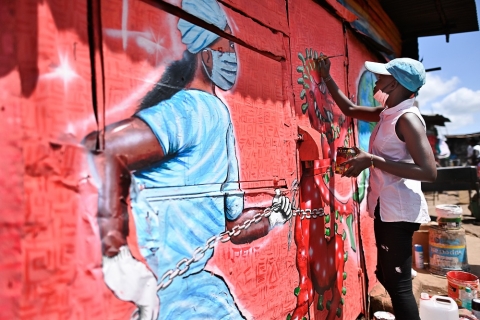
- Details
A lookback on 2020 from Greta Bull, CEO of CGAP with a focus on financial inclusion of micro and small enterprises and digitalisation of financial services.
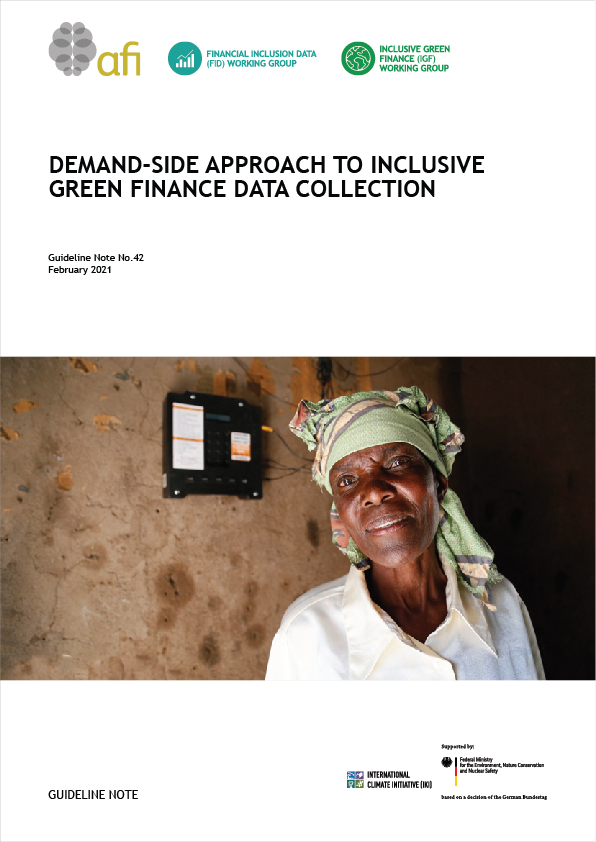
- Details
This publication by Alliance for Financial Inclusion (AFI)aims to raise discussions on "a first approach on collecting Inclusive Green Finance (IGF)-related data from the demand-side, specifically from Demand-Side Surveys (DSS), to support financial regulators and financial service providers to measure the needs and perspectives of the target populations related to the impact of climate-related events and other IGF policies related to the 4Ps conceptual framework."
Read more … Demand-side Approach to Inclusive Green Finance Data Collection

- Details
"The informal economy, comprising activities that have market value and would add to tax revenue and GDP if they were recorded, is a globally widespread phenomenon. According to the International Labour Organization, about 2 billion workers, or 60 percent of the world’s employed population ages 15 and older, spend at least part of their time in the informal sector. The size of the informal sector slowly decreases as economies develop, but with wide variations across regions and countries."

- Details
The EBRD's new podcast discusses globally rising trends of inequality. "Inequality is emerging as the “biggest policy challenge” during and after the Covid-19 pandemic, with the World Bank estimating that extreme global poverty is to rise for the first time in over 20 years."
Read more … EBRD Podcast: Combatting inequality during and after Covid-19
- Details
The COVID-19 pandemic is making it harder for people around world to sustain their livelihoods. The microfinance providers (MFPs) who serve low-income individuals and small businesses in emerging markets are bracing to weather this storm; however, moratoria and deteriorating portfolio-at-risk rates are putting their liquidity under pressure. Not surprisingly, some MFPs and funders have found themselves gathering around the negotiating table in search of a response to liquidity challenges and potential solvency concerns.

- Details
New article on ADB's blog about the role of digital technologies in the times of crisis has been published.
"The pandemic has highlighted the power of digital technology. Now is the time to harness this power for inclusive growth so that communities, especially in poor and remote areas, can survive the crisis and thrive."
Read more … Fintech can drive a strong post-COVID-19 recovery in Asia


